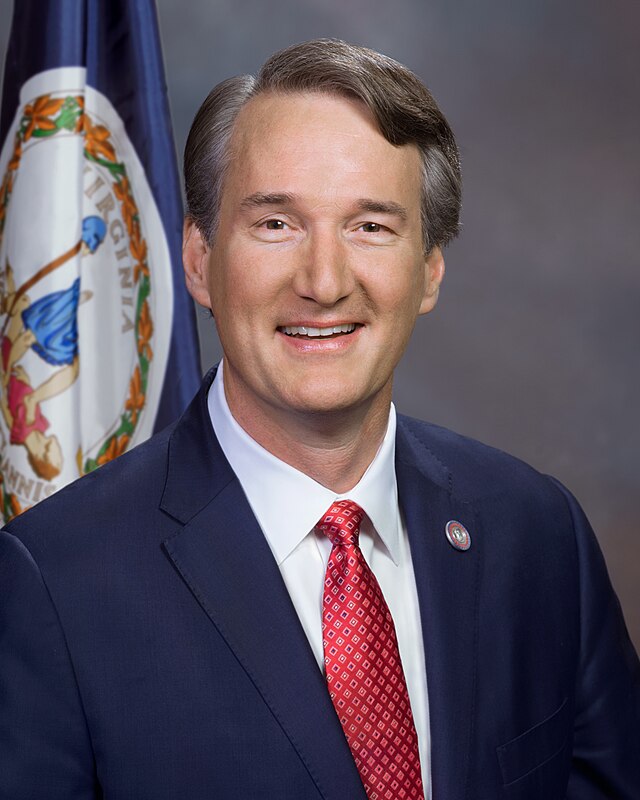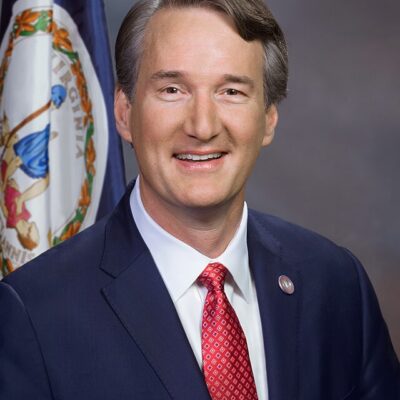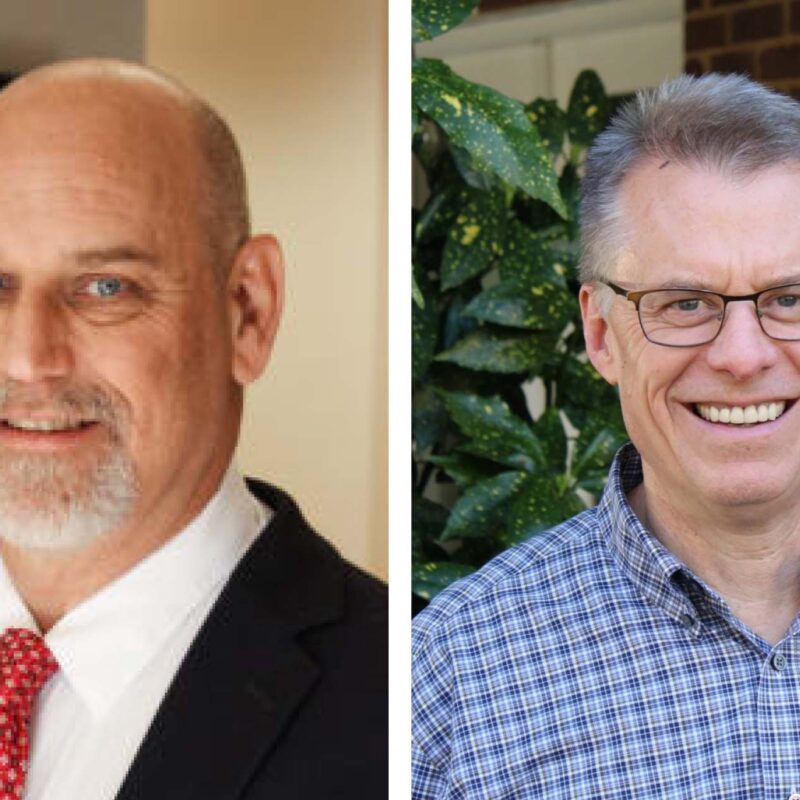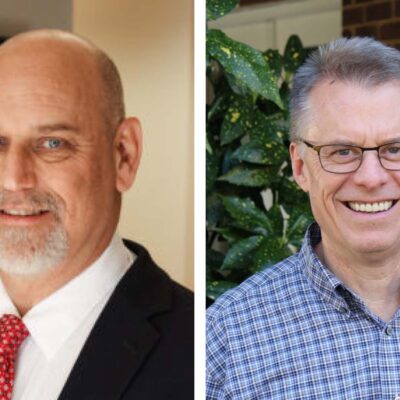“I feel hungry but hopeful,” said Carl David Goette-Luciak on Thursday, February 23, day six of his hunger strike.
|
Members of the UVA Living Wage Campaign rallied to support 18 students engaged in a hunger strike aimed at forcing the University’s administrators to raise its minimum wage for staff and contractors to $13 an hour. UVA President Teresa Sullivan agreed to meet with members of the campaign on Monday, February 27, to discuss their position. (Photo by John Robinson) |
Members of the Living Wage Campaign informed UVA President Teresa Sullivan on February 8 that if the University would not agree to raise the minimum wage for its employees to $13 an hour, they would “take action to publicize the unjust wages and employment practices currently in place at our University.” True to their word, after receiving a written response to their demands that they found unsatisfactory, 12 students began fasting on Saturday, February 18.
The administration responded to the strike immediately, with Vice President and Student Affairs Officer Patricia Lampkin hand-delivering a letter to the students. The letter acknowledged the students’ right to assemble and speak freely, but reminded them of the University’s health policies and expressed an ominous concern for both the health and academic futures of the students participating in the strike.
“A self-imposed illness or an indiscriminate action that breaks the law or the rules of the University could quickly bring unintended consequences that negatively affect your academic pursuits. Please consider how your actions in the short term could diminish your long-term physical health or set back your long-term academic and career goals,” the letter said.
Despite the warnings, the hunger strike continued, and as of Saturday, day nine of the strike, 18 students had joined.
President Sullivan expressed her concern for the health and safety of the students, and agreed to meet with them—on Monday morning.
In the meantime, Sullivan attended the preliminary meeting of the Board of Visitors on Friday, February 23, and her opening remarks addressed the strike. She noted that the protest is “not principally about numbers,” but “is about who makes decisions.” She then went on to discuss the University’s economic situation, stating that she cannot “agree to a promise that the University might not be able to keep.” Before turning to other business, she reminded the Board that she was “concerned about the wages and working conditions here at UVA for all of our employees, including the lowest-paid,” but that she “cannot delegate employment policies beyond our administration, except as required by law.” (Her remarks, as well as Lampkin’s letter to the strikers and other documents concerning the campaign, can be found on the University’s website.)
Hallie Clark, who began fasting Friday, February 17, was not impressed with Sullivan’s response, and noted that by Monday she would have been fasting for 10 days.
“I’m not seeing the commitment I was hoping for,” Clark said.
The strikers and their fellow campaigners have been gathered on the Rotunda from 10am to 5pm every day since the hunger strike began, rallying, marching, and reminding the University that they are not going anywhere.
Virginia Leavell, a Charlottesville native who was involved in a successful hunger strike for the same purpose at Georgetown University, addressed the group on Wednesday.
“You have disruptive power!” she told the strikers.
Leavell told them that in order to succeed, the strikers would have to disregard the type of threats expressed in Lampkin’s letter.
“They throw the craziest crap at you,” she said. “So you protest, and you hunger strike, and then you win. And then you celebrate!”
The group gathered again at the Rotunda on Thursday, this time to hear from Charlottesville City Councilor Dave Norris. Norris prefaced his speech by stating that he was “not here to bash the University of Virginia,” but to “help the University do one thing it says it wants to do,” stressing that contract workers needed the same standing as staff.
The City of Charlottesville has, since 2004, required contractors to pay higher than mininum wage to meet the city’s living wage standards, currently $11.44/hour. So how can the city “get away with it,” when UVA says it can’t, Norris asked.
“We know that a living wage directly impacts the quality of services that are provided by contractors,” Norris said, citing studies that have shown that when a contractor adopts a living wage, productivity, retention, morale, and reliability all improve.
“A living wage is a best value!” he argued.
After the speeches—Norris was joined by members of the NAACP—the group marched, signs in tow, across the street to the steps of Madison Hall, where the strikers gathered to address the crowd and the press, and to describe how they felt after six days with nothing but water.
Clark, usually an energetic figrure, introduced herself by quietly saying from the steps, “I’m not feeling that well, so I’m not gonna speak that loud.”
The strikers said they had felt nausea, disorientation, weakness, and cold, but they were willing to continue.
“I don’t want to do this,” Hunter Link told the group. “I wish it didn’t have to come to this.”
The strikers have received a considerable amount of community support and attention, but some people have questioned their methods and their motives.
Link explained his motivation succinctly, “I feel like I’m doing this for the university.”
Post deadline story update follows:
At 7am Monday morning, a handful of UVA administrators–including President Teresa Sullivan–met with representatives of the Living Wage Campaign for the first time since a group of students–now numbering 20–initiated a hunger strike a week and a half ago.
One of those present–anthropology student David Flood–said the meeting was more for "clarification of positions," than for "negotiations," but that the university had offered to sit down with them again, most likely at 7am on Wednesday. At that point, Flood said, "We’re hopeful that we can actually enter into real negotiations."
Flood is certainly more hopeful than than the nine other participants as he was the only member present participating in the hunger strike. Today is the tenth straight day he’s gone without food.
"I feel terrible," he said, minutes before addressing the crowd gathered in front of UVA’s Rotunda. He will be on day 12 of his hunger strike when the next meeting convenes in the conference room of UVA’s Madison Hall.
"Our sense was that there were things they’d be willing to do, there could potentially be some movement on their part," Flood said. "We’ve said that we are willing to negotiate, to talk about what we’re demanding. We’re willing to move in certain areas, not in others. We had the sense they felt the same way."–Jayson Whitehead
/RI__IMG_5803.jpg)





